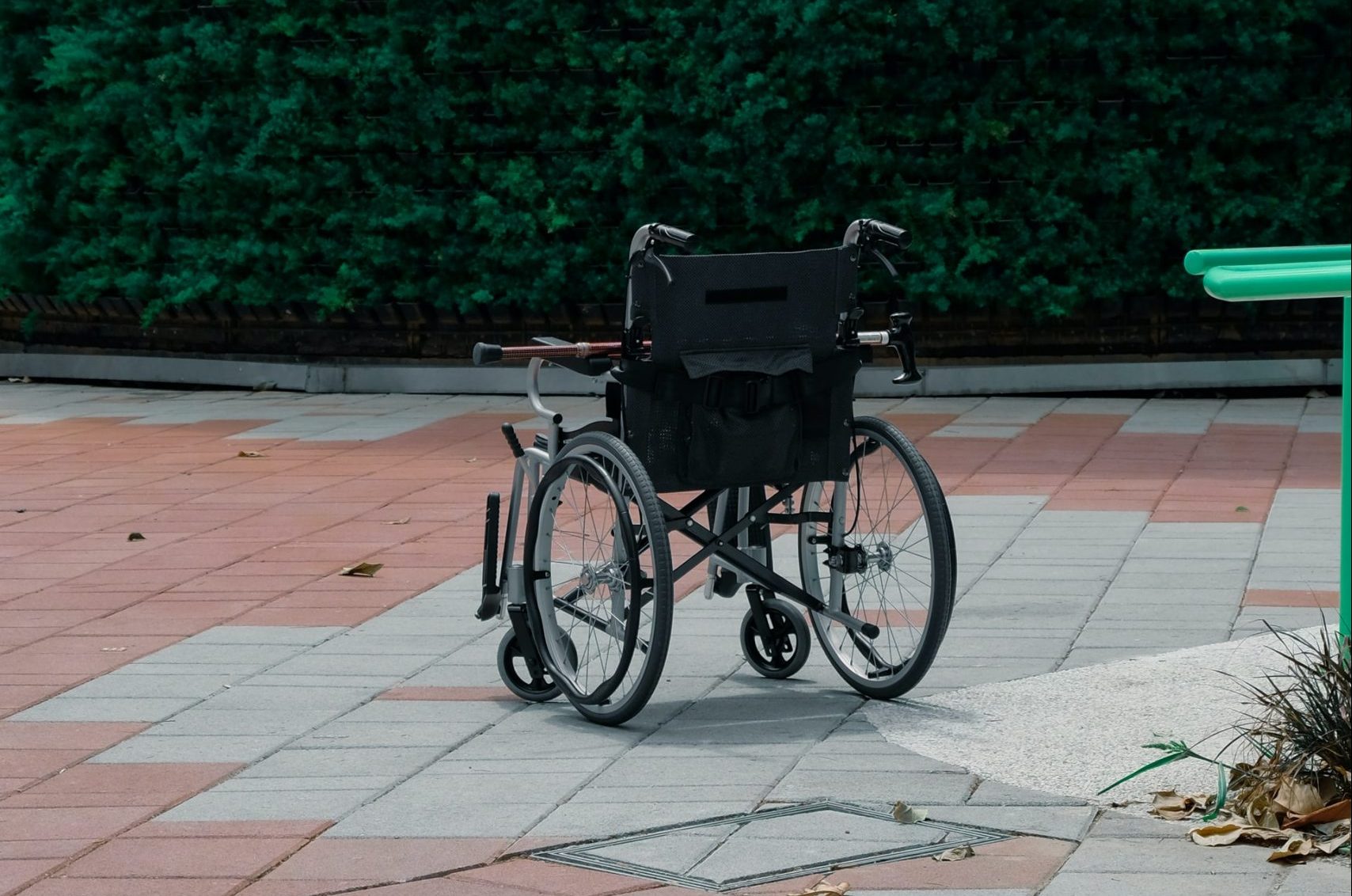This article is an excerpt from the book, We’re Stronger than We Look: Insights and Encouragement for the Caregiver’s Journey. Jill and David Brown lived full and healthy lives until David took a violent fall off his bicycle and into a wheelchair in 2009. Jill now serves as his primary caregiver.
The first summer after David’s accident, I tried to replace a headlight bulb in our Chevy. Did you know some cars have two separate bulbs on each side, one for high beam and one for low, located in different places, with one hiding behind the other?
I didn’t. Not until I went back to the auto supply store, frustrated and sweaty, to report that no amount of contorting myself under the car’s hood would make the bulb fit.
Oh, the contempt in that salesman’s face and voice . . .
As they say in novels, something snapped. I didn’t exactly shout, but everyone in the store heard me tell him, “My husband is a quadriplegic, I’m trying to make life work, and you aren’t helping!” Then I flung myself away from the sales desk and headed for the door.
“Hey,” he called after me. “You didn’t get your refund.”
“I don’t want my refund!” I sounded about two years old.
Outdoors, I melted against the car and sobbed. Another salesman hurried out to apologize. He ended by installing the right bulb in the right place while I sniffed and hiccupped behind him. Then I drove away in deep humiliation. I had never made a scene like that before and hope I never do again. I can’t go back to that store.
Here’s the good part: I don’t have to. David and I crossed “auto maintenance” off my list. I now put gas in the car and take it to Jiffy Lube once a year to have them change the oil, but that’s all. That’s enough.
Depending on your person’s situation, you’re dealing with doctors, nurses, CNAs, physical therapists, occupational therapists, dietitians, CPAP providers, pharmacists, and people with other medical occupations you can’t even pronounce. You come home from each appointment and try to do everything they told you. And let’s not forget all the regular demands like cleaning, cooking, laundry, and grocery shopping, not to mention dealing with bills and insurance.
Right. Let’s not mention that.
Maybe you also have young children. Or maybe you’re among those who work an outside job, then come home and dive straight into caregiving. Or maybe you have young children and a job. If so, I don’t know how you do it. Because we can’t do it all.
Each medical specialist seems to believe theirs is the only field, or at least the most essential. As she straps your person into the standing frame, the therapist says to you, “Last week, I gave you a daily list of passive range exercises to do for her arms and legs. Morning and evening, one hour for each session. How’d that go?”
“Great,” you say. “I think it’s helping.”
“You did the exercises every day?”
“Five days,” you say. “ Well—” a burst of honesty “— four and a half.”
She slides you a long, cool look. “Only nine sessions? For the whole week?”
Implied: You slacker. And for that moment, you feel like a failure. You’re ashamed. You know the exercises are important for your person.
But so is everything else.
If science ever decides to clone people, they should start with caregivers. But until that happens, we’ll just have to focus on the must-dos and call it good. The should-dos can go in a drawer, out of sight but available when priorities change.
If you’re thinking that’s easy to say but hard to do, you’re in good company. We want to do it all. But we can’t. For me, the drawer visual helps. Tucking the should-dos into that drawer means I don’t have to wade through them to get to the must-dos. If for some reason I pull one out and do something with it, that’s a bonus.
As for the sense of failure and shame that wants to drag along behind us, we can roll that up with all the don’ to-dos— tasks like auto maintenance—and shove them under the bed. Not only does that get them out of sight, but we have a great excuse not to vacuum under there.




Jill,
This article was so spot on for me. Will pick up your book.
Everything you describe I identified with, there are times I so want to give up and tell the Lord so, but He says oh well – this is where I need you.
I love it when I read something that says what I know, do, and feel, because I am not very articulate when communicating these things and how exhausting caregiving is, without sounding like complaining.
Thank you for putting it in words.
God’s Blessings,
Linda Eastman
Linda, I’m with you! Whenever I find something that really connects, I read it over and over and wish for more. Thanks so much for taking time to comment – that means a lot. David and I had a rough night, and when I read your comment this morning, I felt a lifting of encouragement. Thank you, and may God bless your honesty and willingness to keep finding strength in Him. I’d say what you wrote is very articulate. It certainly connected with me.